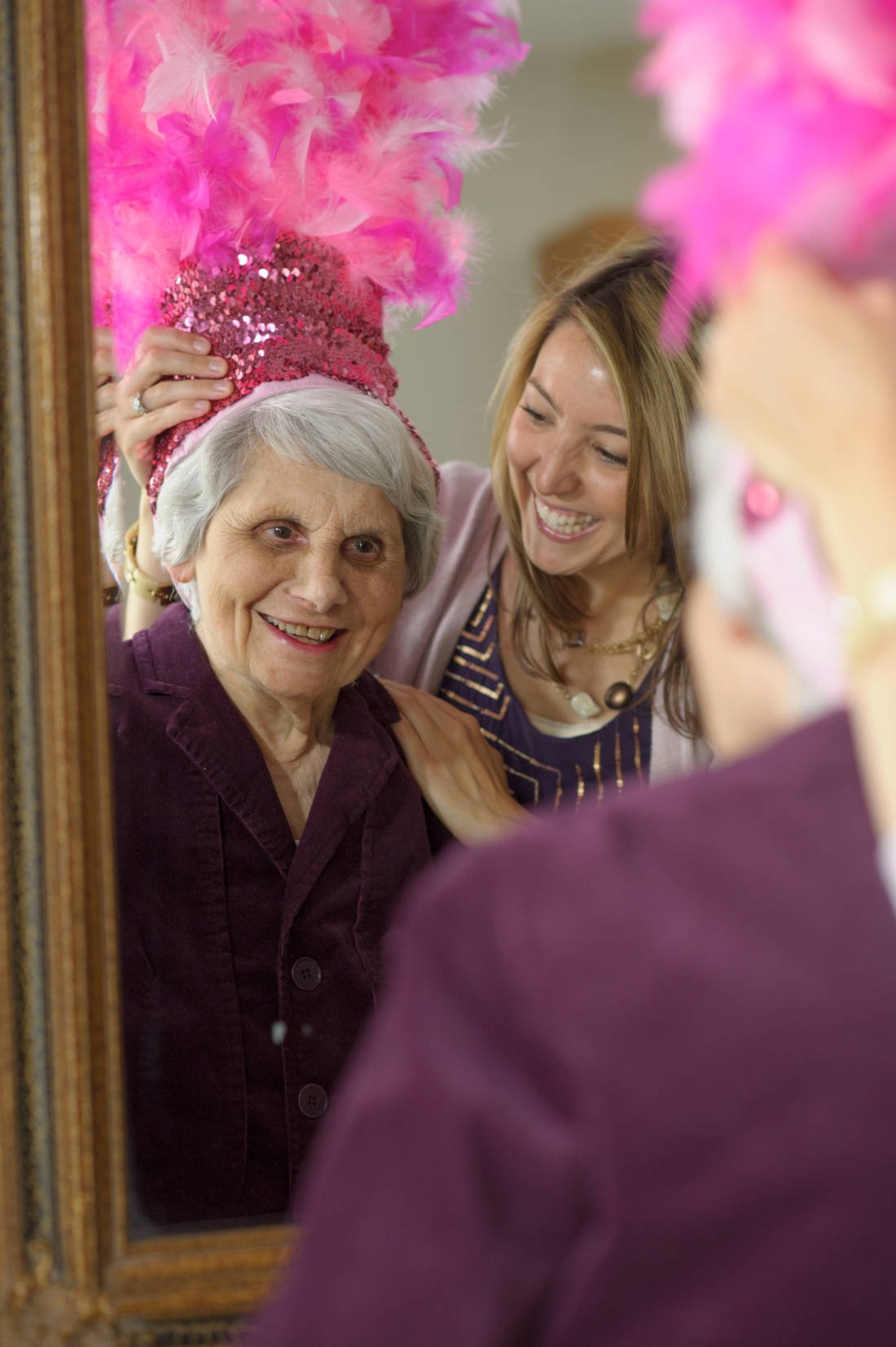Cholesterol and Your Aging Loved One: Is It Really That Important?
 Think your parent is too old to worry about lowering his cholesterol? Think again. Recent research indicates that not only are high cholesterol levels just as dangerous to older adults as they are to younger people, but treatment is equally effective for patients of all ages and genders.
Think your parent is too old to worry about lowering his cholesterol? Think again. Recent research indicates that not only are high cholesterol levels just as dangerous to older adults as they are to younger people, but treatment is equally effective for patients of all ages and genders.
Sponsored by the NIH’s National Heart, Lung, and Blood Institute, Cholesterol Awareness Month offers the perfect opportunity to check in on your aging loved one's cholesterol levels this September. Here’s what you need to know:
Cholesterol and Coronary Heart Disease
Not all cholesterol is bad. In fact, it comes in two varieties, HDL (“good”) and LDL (“bad”) cholesterol. While the human body needs cholesterol for many body functions, when too much LDL cholesterol builds up in the area surrounding the heart, it can impede blood flow and raise the risk of coronary heart disease (CHD).
The leading cause of death in the country, CHD affects millions of Americans. In fact, half of all men and a third of all women over the age of 40 will develop CHD during their lifetimes The good news is that high cholesterol can be managed through a few simple lifestyle changes, including exercise; quitting smoking; nutritious food choices (such as foods rich in fiber and Omega-3 fatty acids and low in saturated and trans fats); and maintaining a healthy weight.
Older Adults and Cholesterol
Seniors are particularly vulnerable to high cholesterol because levels rise with age. Unfortunately, there are no warning signs of high cholesterol, so many individuals are unaware of their levels. While the CDC recommends that adults be screened every five years, more frequent screenings are recommended with age. Your aging loved one’s physician can play a valuable role in monitoring and treating high cholesterol levels.
Encouraging seniors to adopt healthy lifestyle habits can be difficult, but even small changes have the potential to make a big difference. When lifestyle modifications fail to keep cholesterol levels within a safe range, your loved one’s physician may recommend medication.
There is some debate regarding whether people over the age of 70 should take cholesterol-lowering drugs -- particularly if they have no previous cardiovascular issues. Why? Because some research indicates that older people who take cholesterol medication may experience more severe side effects, ranging from liver toxicity to gastrointestinal distress. A physician can help you evaluate the pros and cons, while assessing other factors, including age, blood pressure, and family history.
While high cholesterol is a serious threat, lower cholesterol and reduced risk of cardiovascular disease is within reach. When was the last time your aging loved one had his cholesterol checked? If it wasn’t recently, Cholesterol Awareness Month offers the perfect opportunity to start improving heart health today.
Key Takeaways
-
High cholesterol is a very real threat to older adults -- particularly because it comes with no signs or symptoms.
-
It’s never too late to help your aging loved one lower his cholesterol levels and enjoy better heart health.
-
Lifestyle changes are the first line of defense against high cholesterol levels.
-
If lifestyle changes fail, your aging loved one’s physician may recommend medication to keep levels within a healthy range.
About Marissa Salvesen
My journey into the world of senior living began when I started working for United Methodist Homes in 2010. Starting as an Activities Director at one of our-winning assisted and independent living communities and then transitioning to Marketing and Promotions Manager for UMH, I now work as the Manager of Mission Development, fostering the Mission and Values of our organization. I love sharing stories about the many ways we build meaningful relationships and enrich the lives of those we serve, and am proud to be part of building UMH’s 140-year legacy of caring. Wondering what makes our communities such special places to live and work? Connect with me and find out!

Our Blog is a 2016 Platinum Generations Award Winner! The Generations Award is an annual international competition for excellence in senior marketing recognizing professionals who have communicated to the 50+ Mature Markets.



